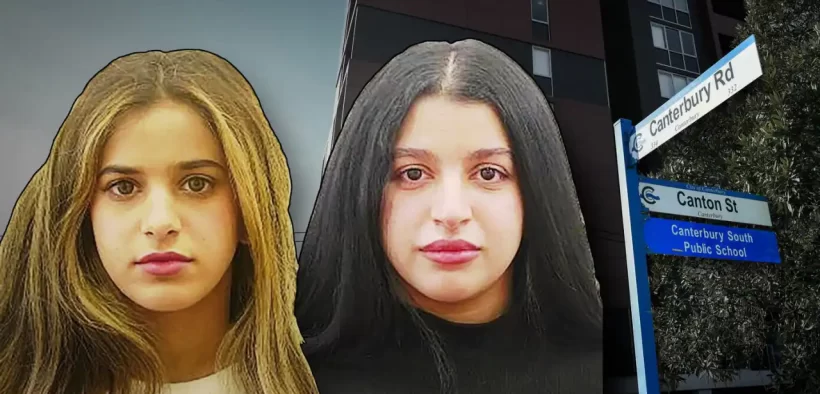Mystery continues to shroud the tragic deaths of two sisters from Saudi Arabia who were found dead in their unit in Sydney’s south-west.
As police continue to investigate, here’s what we know so far.
Who were the sisters?
They were 24-year-old Asra Abdullah Alsehli and 23-year-old Amaal Abdullah Alsehli, who came to Australia from Saudi Arabia in 2017.
They originally settled in Fairfield in Sydney’s west before moving to a unit in the south-western suburb of Canterbury in 2020. The pair were enrolled in TAFE and worked as traffic controllers.
Neighbours of the sisters have told Australian media that they mostly kept to themselves. One
they were “really good people”.

The bodies of the two sisters were found inside their apartment in Canterbury, NSW in June, but police believe they had been there since May. Source: AAP / Bianca De Marchi
They had almost no social media or online presence and did not appear to have been a part of any Saudi dissident networks.
Their bodies were found inside the Canterbury unit in June. NSW Police believe they died in early May, and are still waiting for the results of a coronial report.
SBS News has confirmed they were seeking asylum in Australia, but the reasons for their asylum claim remain unknown.
What have police said?
The sisters’ decomposing bodies were found in separate bedrooms of the unit after the building manager raised concerns for their welfare with police, when food was found left in common areas of the apartment block.
Police said there were no signs of forced entry, but have described the deaths as “suspicious in nature”.
“We don’t know the cause of death,” NSW Police Detective Inspector Claudia Allcroft told reporters last week.
Det. Insp. Allcroft said police spoke to the women in mid-March, and they appeared fine.
“No further action was required from police at that stage,” she said.
She said any piece of information could hold the key.
“Detectives are interested in speaking with anyone who may have seen or who may have information about the women’s movements in the days and weeks prior to their deaths – which we believe occurred in early May,” she said.
“We hope someone may be able to assist our investigators – either through sightings or those who knew the sisters and may have some information on their movements.”
What about the apartment?
The two-bedroom Canterbury apartment recently returned to the rental market for $520 a week, with a disclaimer in an online advertisement for the apartment noting a crime scene has been established there and it is still under investigation.
“According to the police, this is not a random crime and will not be a potential risk for the community,” the disclaimer reads.
NSW Police told SBS News the investigation remains active and anything relating to the rental property was not a police matter.

The apartment on Canterbury Rd, Canterbury, where the sisters were found dead has recently returned to the rental market for $520 a week. Source: Supplied / Domain
Their property manager Jay Hu
the women had been good tenants over the two years they’d rented the unit, but had “stopped paying rent” earlier this year.
Mr Hu told the newspaper they were given notice to vacate the property and there was no further contact. The last he heard of them was when police informed the agency of their deaths.
What is known about their family?
Police have spoken with the women’s family in Saudi Arabia, who are assisting authorities with their inquiries.
Very little is known about them. A neighbour told the ABC that the sisters’ mother had visited Australia once and “didn’t like it”.
Australian media has also reported that the family didn’t want photos of the women to be publicly released, but the investigating coroner overruled the decision in order to better assist the investigation.
There was “nothing to suggest” the family were suspects, or that the sisters had fled Saudi Arabia, Det. Insp. Allcroft said.

Amaal Abdullah Alsehli (left) and her sister Asra came to Australia in 2017 and were seeking asylum. Source: AAP / NSW Police
‘Saudi women often have no support network’
Human Rights Watch Australia researcher Sophie McNeill said asylum seekers from Saudi Arabia were often more vulnerable than most other groups who flee their homelands.
“They often have a really lonely experience,” she told SBS News.
“They don’t want to connect with the Saudi community (here), they want to stay away from other Saudis.”
Ms McNeill, a former investigative journalist, in 2019 documented the plight of Saudi teenager Rahaf Mohammed’s (formerly Alqunun) escape from Saudi Arabia for the ABC’s Four Corners program. The report followed the teenager as she sought asylum in Australia, barricading herself in a hotel in Thailand before she was granted refuge in Canada.
Saudi Arabia faces ongoing criticism from human rights groups over its treatment of women in marriage, divorce, inheritance and child custody situations. While it now allows greater freedoms for women, including allowing them to drive, it still has a male guardianship system that requires women to seek permission from a male relative for tasks including getting a job or certain medical procedures.
“Often these women have no support network apart from other asylum seekers like themselves,” Ms McNeill said.
“They find it really hard to trust other people. They are especially avoiding people from the country they left.”
She said the sisters’ story was an example of why Australia needed to do more for people in such vulnerable situations.















